Being a Picky Eater in China
Growing up, I went through food phases. I’d decide that my favorite thing to stuff my face with was strawberry cream cheese or peanut butter and jelly and then eat only strawberry cream cheese or peanut butter and jelly sandwiches for months at a time. Taking me out to restaurants wasn’t easy. I’d forego looking at the menu, opting instead for the finest chicken fingers the establishment could manage. Of course, I still wanted everyone to think I was adventurous. I’d order escargot then douse them in as much butter and garlic as possible so that I might as well have been eating a Cheddar Bay Biscuit from Red Lobster.
While my taste buds have matured past thinking that bologna is top-cut meat, I still refuse to eat certain foods. I knew that coming to China would present culinary challenges, but hey, there’s always McDonald’s right?
I dipped my toes—or tongue, if you will—into the Chinese food scene slowly, warming myself up with 宫保鸡丁 (gōng bǎo jī dīng – Kung Pao Chicken). The dish is a safe choice and available at almost any restaurant if you ask. It’s made with wine-glazed diced chicken, peanuts, and some combination of stir-fried carrots, peppers, onions, Sichuan peppercorns and garlic. Originally from the southwestern Sichuan province, Kung Pao Chicken has invaded the menu of almost every regional Chinese cuisine. Why? It’s delicious and hard to mess up.
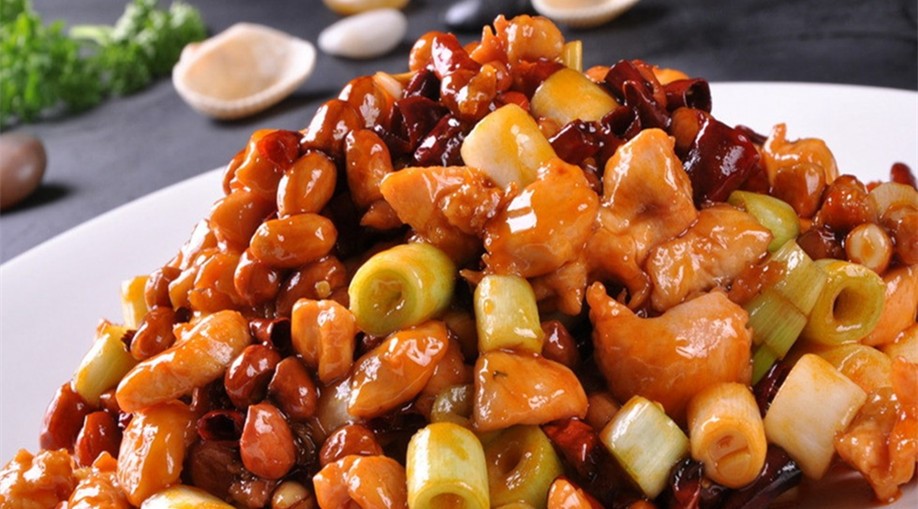
Next I became infatuated with 四季豆 (sìjì dòu – green beans). Green beans you say? What’s so Chinese about green beans? When you throw in ground pork shavings, and enough 麻 (má – tingly flavor) and 辣 (là – spicy flavor) to fuel your work bathroom breaks for a week, you get a much different dish than bland old green beans. This is the dish that finally turned me on to spicy food. I asked the 服务员 (fúwùyuán – server) to add progressively more peppers and peppercorns until my tolerance to spice was at a level high enough to enjoy more daring epicurean offerings.
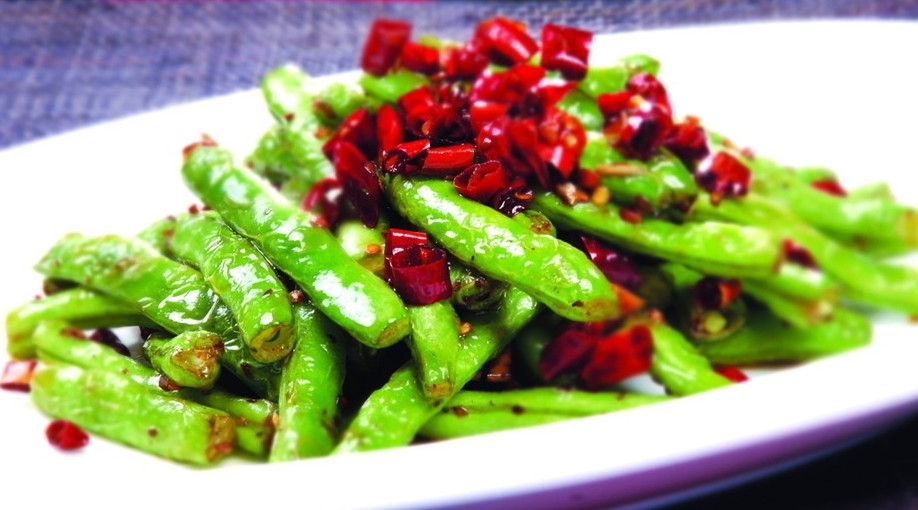
Of course, even the spiciest of spice connoisseurs needs a break every once in a while. For that, there’s 番茄炒蛋 (fānqié chǎo dàn – stir fried egg and tomato). The name of this dish says it all, but it can’t possibly make you understand how good the two ingredients can be when played off each other. A good chef will add just a hint of sugar, an element I never expected to be so delicious with egg and tomato.
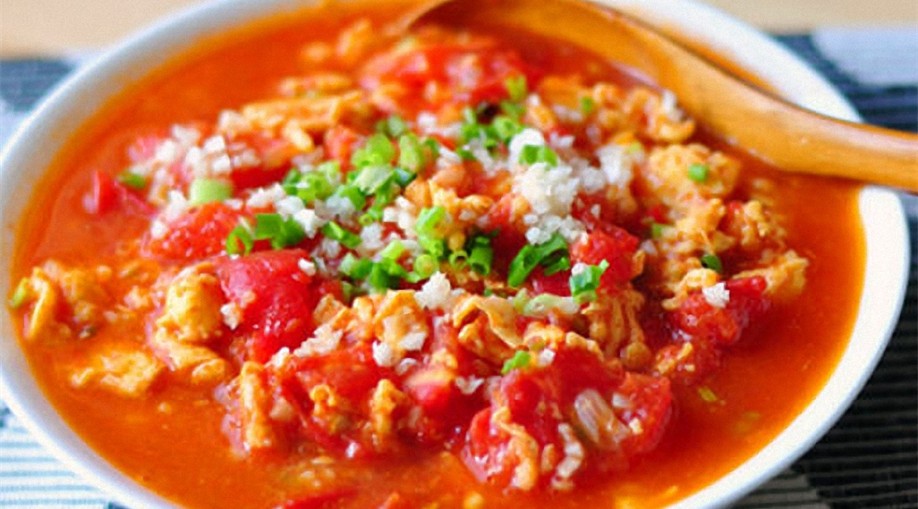
Slowly, and with encouragement from those who eat family-style meals with me, I learned to love Chinese food. In fact, foods that I am loath to eat back home in the United States I jump at the opportunity to eat here. What do you think of when you hear the word tofu? Tofurkey? Tofu burgers? Generally meh cubes of nothingness? That’s what I thought too. Then I tried 家常豆腐 (jiācháng dòufu – home-style tofu) and 麻婆豆腐 (má pó dòufu – stir-fried tofu in chili sauce) and 豆腐卷 (dòufu juǎn – tofu balls) and realized that it wasn’t tofu I didn’t like, it was the flavorless way it was prepared.
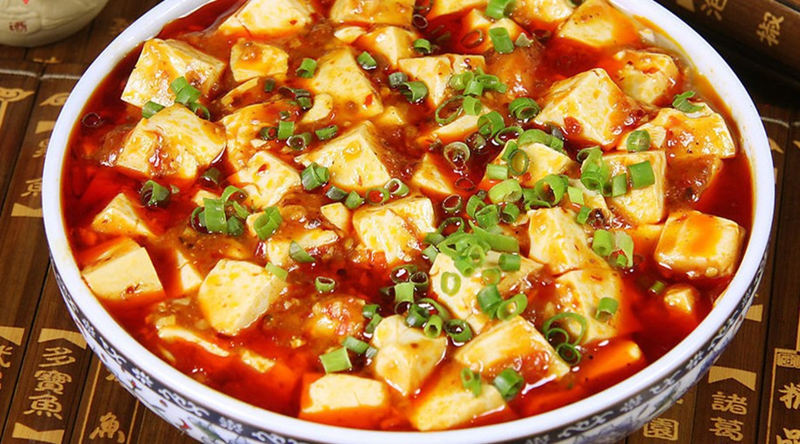
Chinese food goes far beyond chicken and rice. There are Yunnanese mushrooms and Shanghainese soup dumplings. There are Xinjiang lamb kebabs and Shaanxi pork burgers. In fact, there are eight “Great Regional Cuisines of China”: Sichuan (川菜 – Chuān cài), Hunan (湘菜 – Xiāng cài), Guangdong (粤菜 – Yuè cài), Fujian (闽菜 – Mǐn cài), Zhejiang (杭菜 – Háng cài), Anhui (徽菜 – Huī cài), Jiangsu (苏菜 – Sū cài), and Shandong (鲁菜 – Lǔ cài). And those primarily just cover the east! With a wide range of culinary influences and offerings, China was always bound to have something I liked. It just took me opening my mind and stomach to something new to realize it.
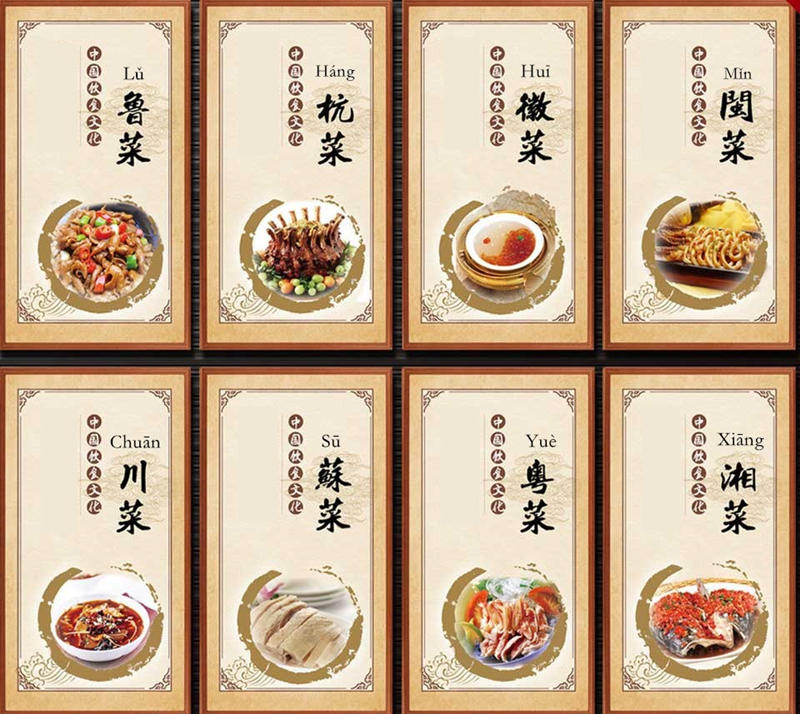




This Post Has 0 Comments